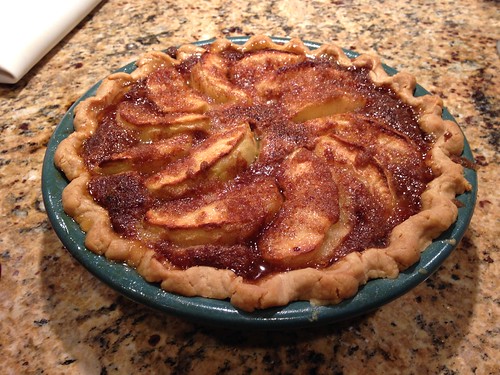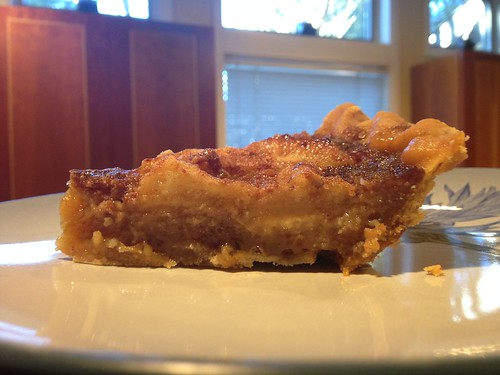“By reading narrative, we escape the anxiety that attacks us when we try to say something true about the world.” - Umberto Eco
“I shall not murder
The mankind of her going with a grave truth” - Dylan Thomas
I don’t know who will read this, or if I’ll let anyone. So I don’t know who I’m writing for. Just to have written? Writing is so important to me that not to have written is a particular form of silence. And here, of cowardice. A surrender to that anxiety Eco speaks of — it’s worse when no one can write the narrative for you to read, when you have to make the meaning yourself.
I lost someone a year ago today. I haven’t talked about it…anywhere on the internet, really. I don’t feel like I own her story. Who owns the stories of the dead? I don’t think I have the skill to say any of the things I feel in a way that is too true to be trite. I don’t want to use her as a vehicle for my own self-aggrandizement, or fall into the easy tropes of illness and grief to save myself the trouble: she hated those tropes. She hated being forced into someone else’s story by illness, as if the illness got to rewrite who she was. I don’t want to force what she and those we loved suffered and have suffered since into a piece of pain porn. I don’t own her survivor’s story, either.
But on the other hand, I do own my own story. I own what she meant to me, and my memories of her. I own my mistakes and my learning. So I’ll take a stab, and maybe I’ll just show it to my family and my chosen family. Or maybe I’ll set it loose on the web, one way to insist that she was here, and it mattered.
I met Ace in college; she went to the art school nearby. We met through the man who would become my chosen “brother”, and her partner. She was tall, rosy, and bold. Weary only when she genuinely was, not in that cynical way: given to genuine enthusiasms — who cared what the fuck other people thought?
I didn’t like her. I didn’t understand her. I was deeply enmeshed in the constant and futile fight to control what others thought of me. Nothing so profoundly nettles a person like that than someone who seems not to give a fuck. She did what she did with a whole heart: ironically, one of the things she did was take to me immediately. She told me years later that she found me vivid and delightful the instant we met. Of course she didn’t hide it — why would she, except that it’s not what people do, being unabashedly charmed by new acquaintances? It undoubtedly made me more standoffish. My cowardly way of not caring what the world of non-geeks and cruel Muggles thought was to try to remain out of their notice. She was wild. She was a lit flame I was afraid to stand beside.
I barely saw her, through college and after, until we both ended up in Northern California, for the reasons you do: my partner’s job, her partner’s graduate program. I was profoundly lonely, every friendship I had save one suddenly long-distance. That one, luckily, was with my dear “brother” Mike, and she was with him.
I didn’t understand her, still, but suddenly I was ready to learn. I was older, I hope wiser, a bruised and jaded grad student being taught to turn an open eye and a listening heart to the world. Ace was surprising, exhilarating: she brought a horrible eighties leather jacket home from the thrift store and remade it fearlessly on the spot with heavy shears and safety pins. She smiled easily and widely. All of us liked to make things, but Ace in particular always had a project in progress. She made subversive photo-art about gender roles and raged about her consuming hatred for Bratz fashion dolls. She and I would compare tales of woe from our crappy retail jobs. I wasn’t taking amazing care of myself, and she and Mike adapted to the fact that when I came to see them at 4, after a shift at Starbucks, I would always have forgotten to eat since breakfast — they’d just plan me a meal. Ace was cuddly, completely unafraid of being silly and kiddish and affectionate with her friends. She was one of those rare listeners who makes you feel that you’re not only heard, but profoundly and unconditionally accepted: that you’ve poured out your heart and she’s caught it and kept it still and safe.
I had learned who she was and why she was precious by the time she got sick, and I loved her. I did what I could. Time wore on, and I moved home to Oregon and she had a couple years’ respite. When she got sick again, I found that “what I could do” had dwindled, and what was left seemed, on the surface, petty. I could be there, physically; I could be silly with her and with Mike, be cuddly and childish and present. And although it seemed like very little, I have never felt so profoundly needed in my life. It was terribly hard to leave them each time. I found myself, too, asking Ace for advice, talking to her about my own quandaries, which felt terribly selfish until I realized she loved it. Of course. I loved being any sort of help to her, and she loved helping me back.
I don’t want to make my Ace, so three-dimensional I can still feel the curve of her spine under my hands, into a paper saint. She was intensely human, and she had flaws like anyone else. She could sulk like a champion on occasion. She sometimes put comfort or instinct above the letter of doctor’s advice. She was hard on herself and sometimes too kind to tell you the whole truth about yourself. And as I try to list these flaws, as I try to tell you she was a human, who had ‘vices’ and made ‘mistakes’, I don’t even care or see them as flaws, they were just her, and I wish she were here to whine, or smoke like a chimney, or whatever. I want her here to tell dirty jokes and listen to my creative plans with way more attentiveness than they possibly deserve. She wove me a purse out of cassette tape, and fed me when I was hungry, and gave me goggles so I’d survive the apocalypse, and taught me to wear makeup in bold wild colors I loved, and asked me hard questions, and held me when I cried. I want her in the world, she made it better.
She was one of the most alive people I’ve ever met, elemental, hungry, vibrant, and she’s gone. I learned so much from her, from loving her, and even from losing her. But ‘I learned so much from her’ is a cliché that we use to smooth over a wound, and I don’t want to do that, to lie about the wound that’s very real, for all of us that loved her. Nothing I learned was worth losing her, or what she went through. I can’t live my life in any way that makes it okay that she’s not in it.
I did learn from her. Her audacity and authenticity, her unconcern about the opinions of all and sundry. I learned that the simple, silly things may be all you have in the end: the presence and closeness of people who love you. I learned that it’s beyond foolish to hide your love, friendship and admiration because of pride or cowardice. I’m a braver, happier woman because Ace was in my life.
And most of you? She didn’t get to be in yours. I’m writing this in part because no one who hasn’t met her gets to, now. I can’t change that with wishing or writing, but I can at least yell that she existed. She’s gone but we’re still here, Mike’s still here, I’m still here. I’m trying to make something out of that — a story, or a dedication. And despite what movies say, it’s not suddenly easy to be amazing and bright and remarkable yourself when you realize, as if you’d somehow never thought it before, that life is precious; when you have a memory to live up to or honor. You still have to do all the hard work of creating and traveling and adventuring and living. I don’t get a montage, I have to make a life. It’s been a year without her, and I’m not magically the woman I want to be. I am and will always be a work in progress. She was, too.
I miss you, Ace, and I’m grateful that I knew you.



